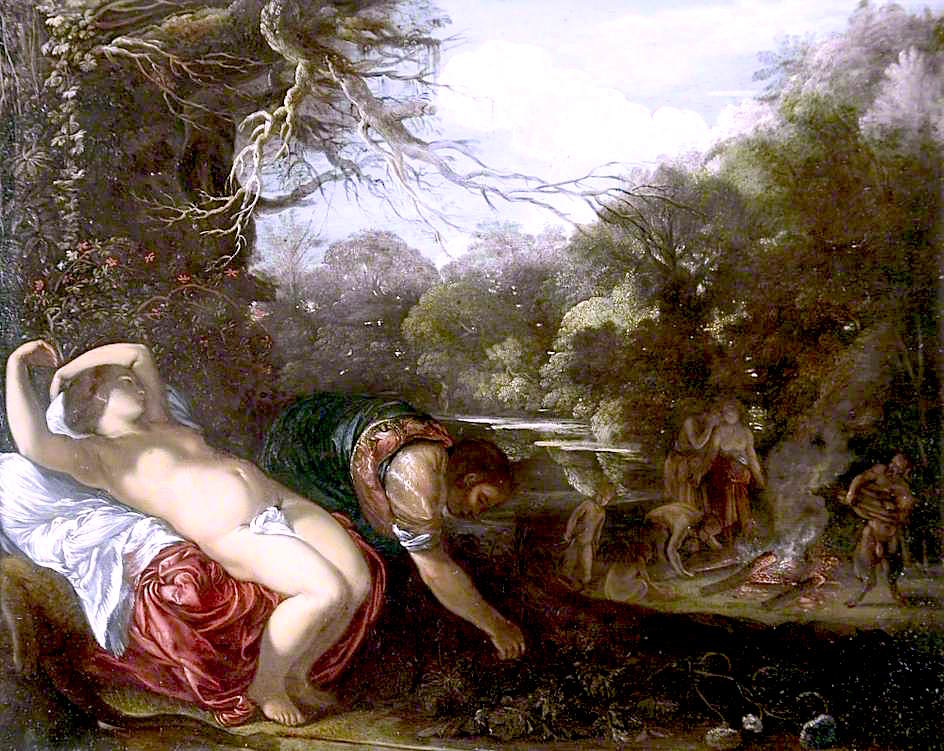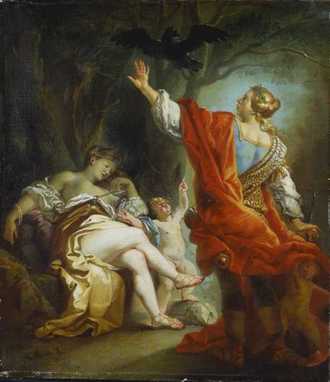CORONIS IN GREEK MYTHOLOGY
Coronis was a mortal princess in Greek mythology, who was also a lover of Apollo and mother of Asclepius. The story of Coronis though, ends in tragedy, with her death due to a jealous Apollo.
Coronis and Apollo
Coronis was the daughter of Phlegyas, a Thessalonian king, and Cleophema, and potentially the brother of Ixion.
Coronis would reside in the town of Lacereia (or Tricca) in Pelasgiotis, Thessaly, near to Lake Boebeis. Here, Coronis was seduced by the Olympian god Apollo, and she fell pregnant by the god.
Coronis would reside in the town of Lacereia (or Tricca) in Pelasgiotis, Thessaly, near to Lake Boebeis. Here, Coronis was seduced by the Olympian god Apollo, and she fell pregnant by the god.
Coronis and Ischys
Apollo would of course depart from Thessaly, but the god expected Coronis to remain faithful to him. Instead, Coronis would fall in love with a visitor from Arcadia, a man called Ischys, son of Elatos.
Certainly Coronis would sleep with Ischys, and some sources tell of Coronis and Ischys marrying, but in either case Apollo regarded this as Coronis being unfaithful to him.
It was said that Apollo found out about the unfaithfulness of Coronis when a raven called Pytho told the god of occurrences in Thessaly. It was also said that the raven had been placed to look over Coronis by Apollo so that no harm should befall her.
Certainly Coronis would sleep with Ischys, and some sources tell of Coronis and Ischys marrying, but in either case Apollo regarded this as Coronis being unfaithful to him.
It was said that Apollo found out about the unfaithfulness of Coronis when a raven called Pytho told the god of occurrences in Thessaly. It was also said that the raven had been placed to look over Coronis by Apollo so that no harm should befall her.
The Raven is Turned Black
|
The news that the raven had brought him angered Apollo greatly, and in a fit of rage, Apollo turned the raven, which had previously been an all-white bird, into a bird with black plumage. Although whether this rage was because of the new brought, or because the raven had done nothing to stop Coronis is not particularly clear.
The Death of CoronisThe anger of Apollo was also directed at Coronis, and some tell of how Apollo sent his sister Artemis to slay his former lover, or else Artemis did it unasked, for she considered that Coronis, in her actions, had insulted Apollo, or else Apollo himself did the killing.
In any case, in her house in Lacereia, Coronis was struck dead by a godly arrow, as was Ischys. Asclepius Child of Coronis |
|
Coronis in Greek Mythology
Alternatively, Coronis had already given birth to Asclepius by the time of her death, but in this version of the myth, Coronis had left the son of Apollo exposed upon Mount Myrtion in Argolis.
The reason why Coronis was to be found so far away from Thessaly was said to be because she had accompanied her father on one of his expeditions, but had kept her pregnancy hidden from him, fearing his anger.
Asclepius of course did not die upon Mount Myrtion for he was fed by the goats who grazed on the mountain, and guarded by one of the shepherd’s dogs, until the baby was rescued.
The reason why Coronis was to be found so far away from Thessaly was said to be because she had accompanied her father on one of his expeditions, but had kept her pregnancy hidden from him, fearing his anger.
Asclepius of course did not die upon Mount Myrtion for he was fed by the goats who grazed on the mountain, and guarded by one of the shepherd’s dogs, until the baby was rescued.
The Death of Coronis' Father
Some also tell of how Phleygas sought retribution against Apollo, either because of the pregnancy of his daughter, or because of the death of Coronis. Thus it was said that Phleygas burnt down the temple of Apollo at Delphi, but this action achieved nothing but his own death, for Phleygas was killed by the arrows of Apollo.
|
|
Colin Quartermain - Coronis - 17th March 2017

